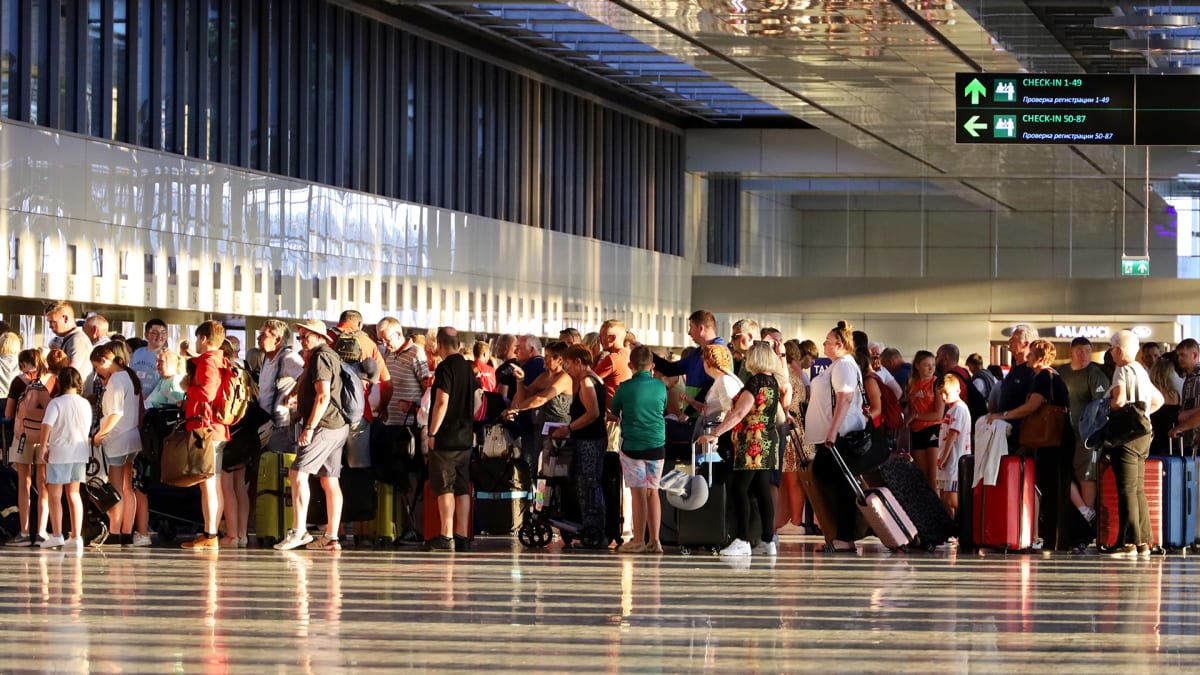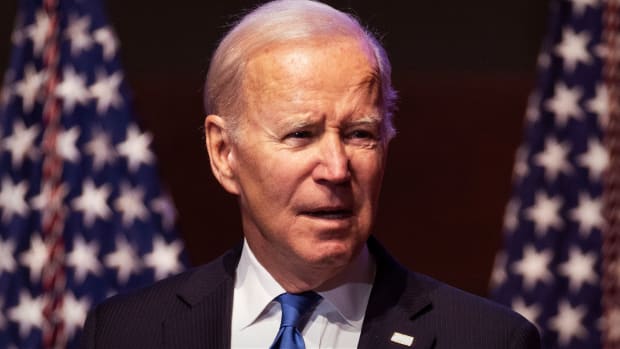
There are any number of reasons a flight can get canceled — bad weather, a security concern or a flight crew that gets delayed by another flights.
While delays and cancellations make up small number of flights that take off on time every day, they have been on the rise amid a busy season and staffing shortage. According to the U.S. Department of Transportation, the percentage of cancelations went up from 1.9% in 2019 to 2.7% in 2022.
DON'T MISS: Here's Who To Blame For All Those Flight Cancellations
One of the most memorable recent examples took place when, in December 2022, Dallas-based Southwest (LUV) canceled over 16,700 flights over the last 10 days of December.
While the problem was began over a winter storm in many parts of the country, an outdated booking system extended the time it took to get travelers to their destinations and left tens of thousands stranded — the DoT issued a statement over the "unacceptable rate of cancellations and delays and reports of lack of prompt customer service."

Kevin Dietsch/Getty Images
Here's What The White House Is Doing About Flight Cancelations
Nearly half a year later, the DoT is preparing to announce new rule that would crack down on compensation for travelers affected by canceled flights.
As first reported by CNN, President Joe Biden and Transportation Secretary Pete Buttigieg will propose steps that would require airlines to provide full refunds for "controllable" flight cancelations or delays beyond a certain time thresholds.
The new rules would also make it harder for airlines to get away without providing things like meal vouchers, overnight hotel stays and transportation to the accommodations.
"When an airline causes a flight cancellation or delay, passengers should not foot the bill," Buttigieg said in a statement. "This rule would, for the first time in U.S. history, propose to require airlines to compensate passengers and cover expenses such as meals, hotels, and rebooking in cases where the airline has caused a cancellation or significant delay."
The White House official who scooped CNN prior to the official announcement also said that the administration will announce an expanded dashboard showing which airlines currently offer "cash compensation, provide travel credits or vouchers, or award frequent flyer miles and cover the costs for other amenities" on FlightRights.gov.
The proposal would still need to be approved and worked out when it comes to specific details but is the first step toward expanding cancelation and delay compensation.
Here's Why The Summer Flying Season Will Be So Busy
The proposal comes at a very busy period for both airlines and travelers — post-pandemic demand for air travel is soaring while almost every airline is short on the staff needed to meet it.
American Airlines (AAL) recently cut more than 50,000 flights from its summer schedule while United Airlines' (UAL) CEO recently named understaffing as the industry's most pressing problem in 2023.
Delays and cancelations are thus especially likely to take place during the busy summer months and, should the White House's proposal come into effect, would post a significant blow to airlines that would need to provide larger numbers of compensation to more travelers than they currently do.
While airlines have always been legally required to get customers to their final destination, no major airline currently provides outright cash compensation for preventable cancelations or delays.







